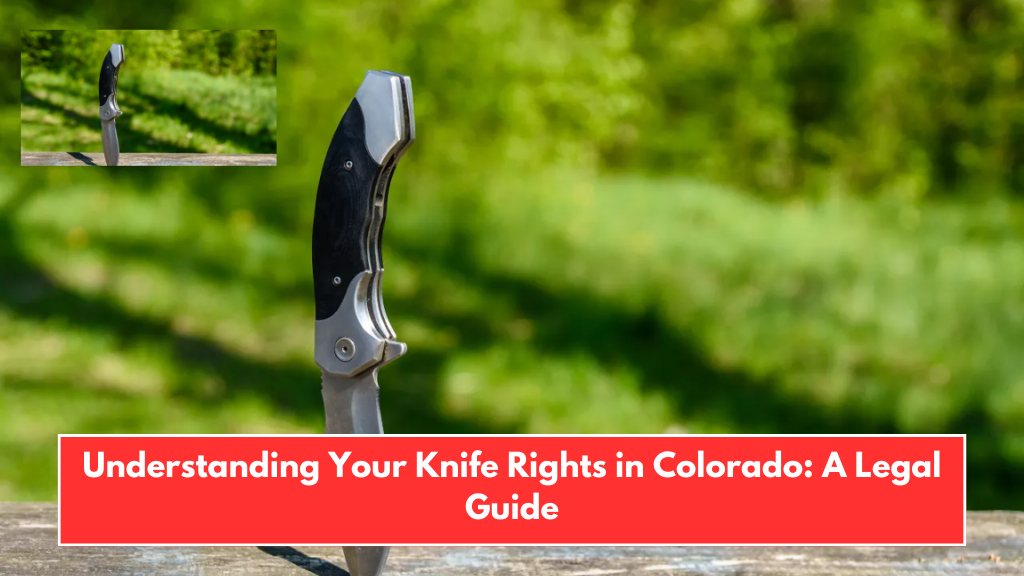If you’re living in Colorado or planning to visit, knowing the state’s knife laws is very important. Whether you carry a knife for safety, work, or outdoor sports like hunting or fishing, being aware of what is legal and what is not will help you avoid serious legal trouble.
What Is Legally Considered a “Knife” in Colorado?
Under Colorado law, a knife is defined as:
Any dagger, dirk, stiletto, or any knife with a blade longer than 3.5 inches, or any other sharp instrument that can cut, stab, or tear wounds.
However, hunting or fishing knives are not restricted when carried for sports use. If someone is charged, they must prove this as an affirmative defense.
Illegal Knives in Colorado
Some knives are never allowed to be carried in Colorado:
- Ballistic knives: Knives with blades that shoot out from the handle using springs or explosives.
- Blackjacks: Weighted clubs designed to hurt.
Owning these is a serious crime. Possessing a dangerous weapon like a ballistic knife is a Class 5 felony, punishable by up to 3 years in prison and fines up to $100,000. A second offense becomes a Class 4 felony, with 2–6 years in prison and fines up to $500,000.
Legal Knife Carry Options
Open Carry
In Colorado, you can openly carry most knives, as long as they are not ballistic knives or blackjacks. There are no blade length limits for open carry.
Concealed Carry
If you want to carry a knife concealed, it must have a blade shorter than 3.5 inches. This includes folding knives or pocket knives.
Hunting and fishing knives, even if they are larger, can also be legally carried concealed if you’re using them for that purpose.
Knife Rules on School Property
Knife laws are very strict when it comes to schools. Carrying a deadly weapon, which includes knives, on school, college, or university grounds is a Class 6 felony.
This can lead to 1 to 18 years in prison and/or a fine up to $100,000. There are some exceptions, but unless you have clear legal authority, it’s safest to assume no knives are allowed on school property.
Penalties for Breaking Knife Laws in Colorado
Here’s a breakdown of the possible punishments:
- Concealed knife with blade over 3.5 inches: Class 1 misdemeanor
- Up to 364 days in jail and/or up to $1,000 fine
- Possessing a ballistic knife:
- First offense: Class 5 felony (Up to 3 years in prison, up to $100,000 fine)
- Repeat offense: Class 4 felony (2–6 years in prison, up to $500,000 fine)
- Carrying a knife on school property:
- Class 6 felony (1–18 years in prison, fine up to $100,000)
Legal Defenses If You’re Charged
If you are facing knife-related charges in Colorado, here are some legal defenses your lawyer may use:
- The object is not legally considered a “knife.”
- The knife was under the 3.5-inch limit, so concealed carry is allowed.
- You did not know you were carrying the knife.
- The knife was for hunting or fishing use.
- Police obtained evidence illegally during a search.
Every case is different, so getting legal advice is important if you’re charged under Colorado’s knife laws.
Colorado allows many types of knives, but there are strict rules about how and where you can carry them. While open carry is mostly legal, concealed knives over 3.5 inches and any possession on school grounds can result in serious penalties. Knowing these rules can help you stay safe—and stay out of legal trouble.
If you’re unsure or facing charges, it’s best to consult a legal professional. Don’t take chances with the law. Get expert help and understand your rights fully.














